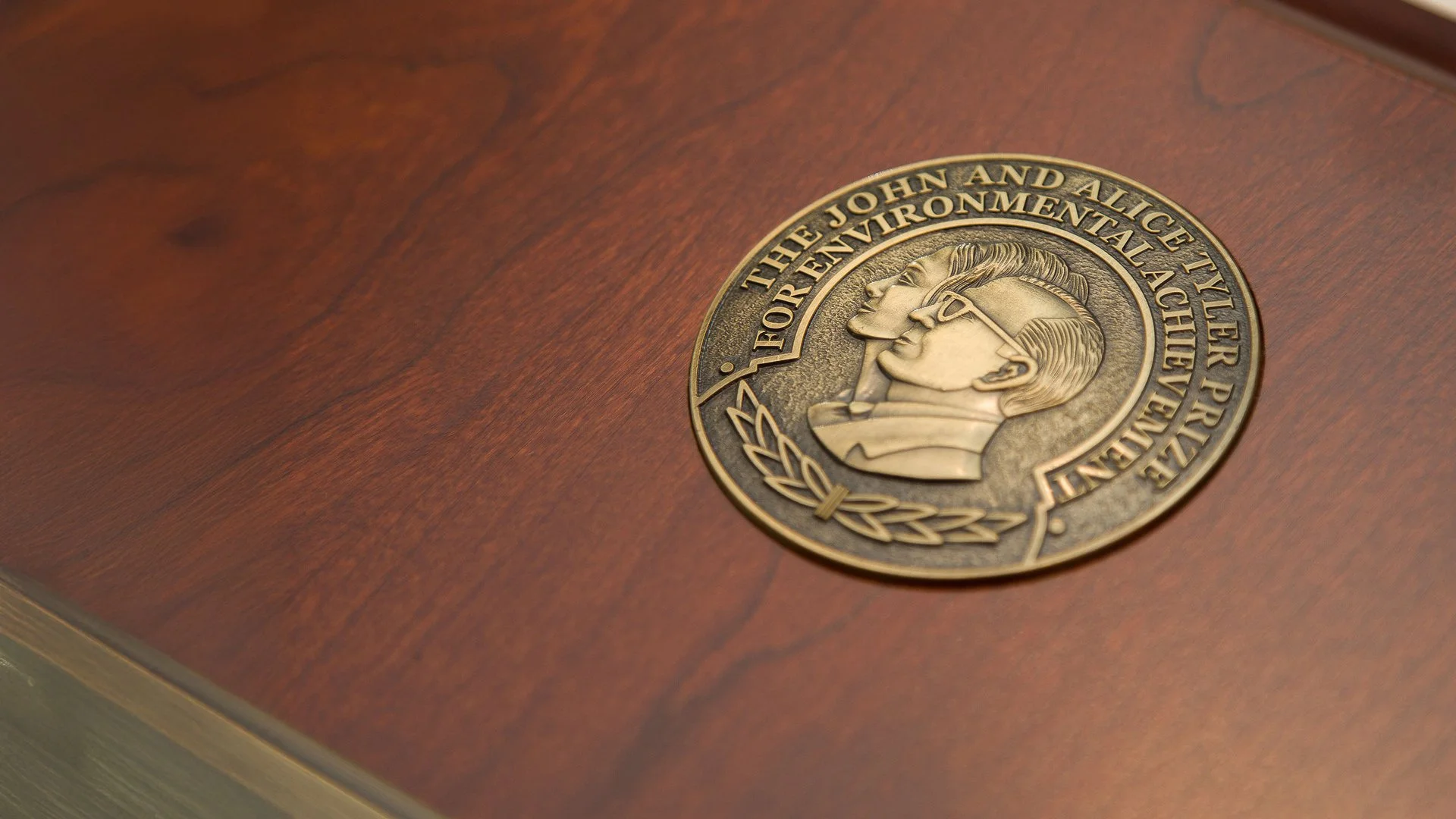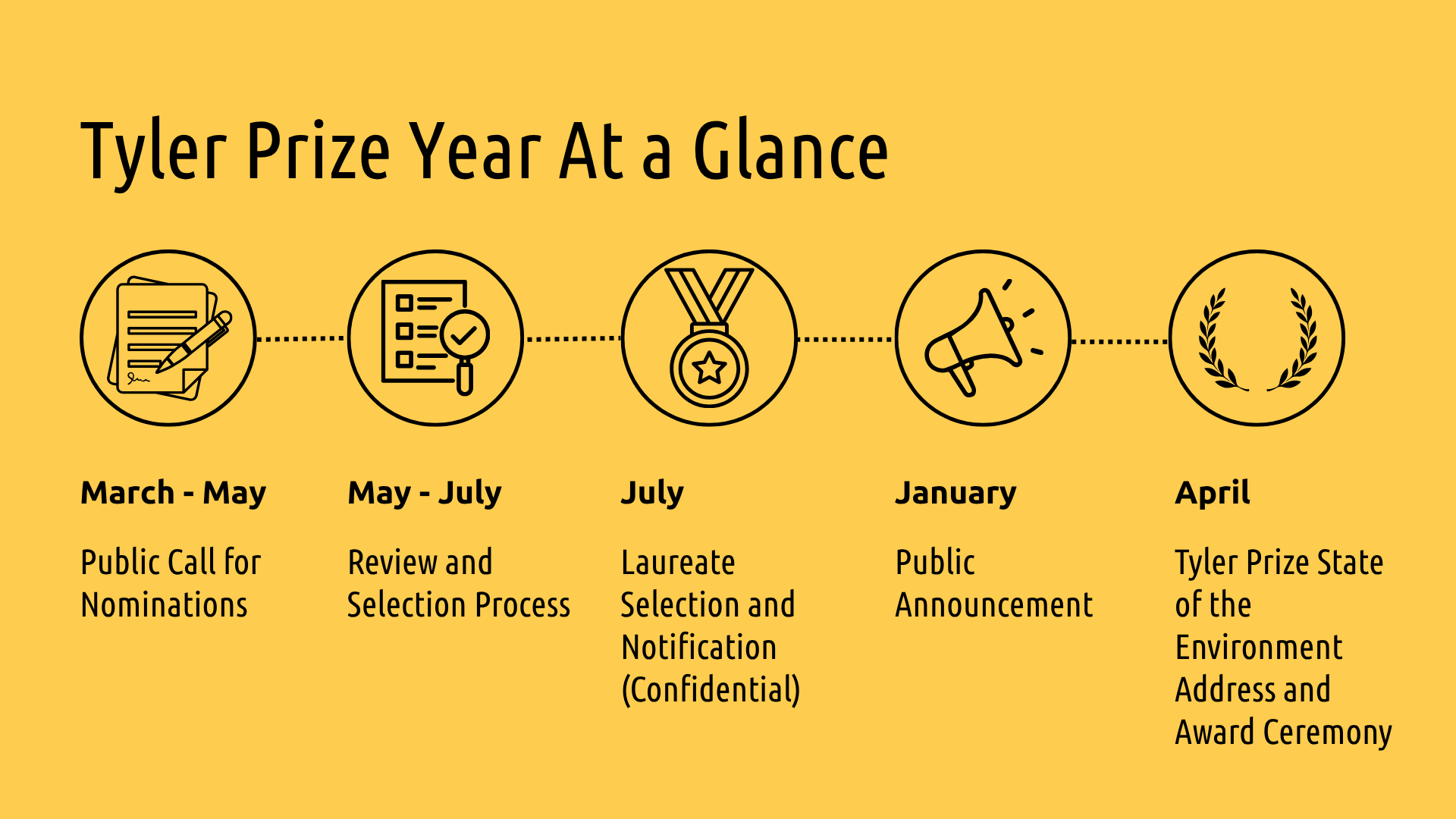
Welcome to the Tyler Prize
The world’s most prestigious and longest-running environmental award
The wait is almost over.
Official announcement on 0600am (CET) on 14 January 2026.
Follow us on LinkedIn, BlueSky and YouTube
The Tyler Prize for Environmental Achievement
Leading Voices, Inspiring Excellence
Established in 1973 by the late John and Alice Tyler, the Tyler Prize for Environmental Achievement was the first prize of its kind to recognize achievement in environmental science. For more than fifty years, the prize has been awarded to scientists, policymakers, and thought leaders whose groundbreaking work has advanced environmental science, conservation, and sustainability worldwide.
Recipients of the prize (known as our Laureates) work across diverse fields within environmental science including conservation, public policy and economics on issues including health, air, water pollution, biodiversity loss, and energy. The $250,000 prize is awarded to any individual or organization from any part of the world that has worked to deliver global solutions for environmental impact.
The Tyler Prize is administered by The University of Southern California, Los Angeles, USA.






